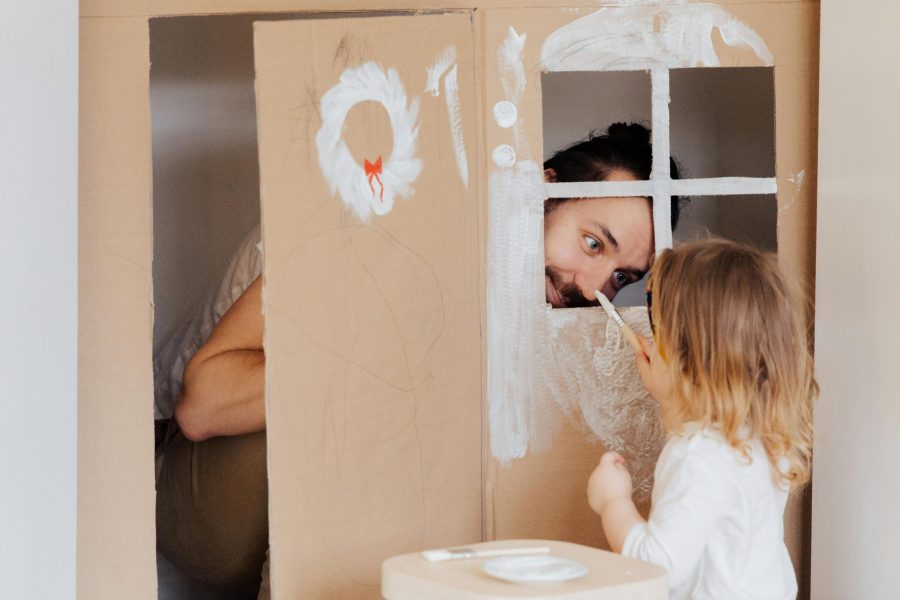Parenting is one of the most rewarding journeys, but let’s be honest, it can also feel like one of the hardest. When it comes to raising confident and resilient kids, the pressure can be overwhelming. If you’ve ever doubted yourself or felt like you’re not getting it “right,” you’re not alone. Gentle parenting offers a way forward that focuses on empathy, connection, and mutual respect. It’s not about being perfect. It’s about showing up and growing alongside your child.
When I worked as a lecturer in early years education, we often discussed how a child’s self-confidence is deeply rooted in feeling secure and understood. This is something I’ve seen time and again, both in my professional work with families and in my own parenting journey.
The Power of Connection
At its heart, gentle parenting focuses on building a strong parent-child connection. This doesn’t mean you have to get it right every time (because who does?), but it does mean approaching challenges with understanding. Meeting a meltdown with calm instead of frustration is hard, especially after a long day, but it shows your child that their emotions are safe with you.
I’ll admit, I’ve had my moments of saying the wrong thing in the heat of frustration. But even then, I’ve found that repairing the connection afterward apologizing and validating my child’s feelings has strengthened our bond.
Even on the days when you’re running on empty, small gestures like getting down to your child’s level or offering a hug can make a big difference. Tools like a [mindfulness card deck] or a [sensory stress ball] can also help during those emotional moments, for both you and your child.
Building Confidence Through Gentle Discipline
Discipline is one of the most challenging parts of parenting, but it doesn’t have to feel like a battle. Gentle parenting shifts the focus from punishment to guidance, teaching children what they *can* do rather than shaming them for what they can’t.
For instance, if your child is struggling with sharing, you might say, “I see you really want to play with that toy. Let’s figure out how we can take turns so everyone has fun.” It’s not about letting things slide. It’s about helping your child feel understood while learning to navigate boundaries.
When I managed a nursery, I saw how children thrive when they’re treated with respect. Giving toddlers simple choices, like which color plate they want, can make them feel empowered and build their confidence.
Books like The Whole-Brain Child or Peaceful Parent, Happy Kids can offer practical ideas if you’re looking for more support.
Encouraging Independence
It’s natural to want to shield your child from struggle, but confidence comes from doing, not avoiding. Whether it’s letting your toddler pick out their own clothes (even if it’s a superhero cape and pajamas) or encouraging your older child to try new tasks, fostering independence helps kids believe in their abilities.
I’ve found that visual aids, like a routine chart or a task planner, can make a big difference in our household. My daughter loves seeing her day laid out in pictures, and it gives her a sense of control.
Connection Through Play
Play is one of the easiest ways to build connection, and it’s something kids understand instinctively. When you take the time to join in their world, whether it’s building with Duplo, playing hide-and-seek, or simply rolling toy cars back and forth, you’re showing them they matter.
One of my favorite moments was when my daughter built a “castle” out of blocks and invited me to “visit.” It wasn’t the most architecturally sound creation, but the pride on her face made it perfect.
For extra fun, consider cooperative board games like Snug as a Bug in a Rug or creative kits like family hand-print set. These activities not only strengthen your bond but also help your child practice skills like teamwork and problem-solving.
Self-Care for Parents
Gentle parenting isn’t always gentle on *you*. It takes patience, consistency, and a lot of emotional energy. That’s why self-care isn’t just a luxury. It’s a necessity. Taking even a few minutes to recharge can make all the difference in how you respond to your child.
Whether it’s a guided journal, a calming app, or simply sitting with a cup of tea, small moments of care can help you show up with the empathy and understanding your child needs
Final Thoughts
Parenting isn’t about getting everything perfect. It’s about progress, not perfection. Every moment is an opportunity to learn, grow, and connect, even when it feels messy.
So if your child is having a meltdown in the supermarket or using the sofa as a trampoline, take a breath. These moments don’t define you as a parent. What matters most is the love and connection you’re building every single day.





